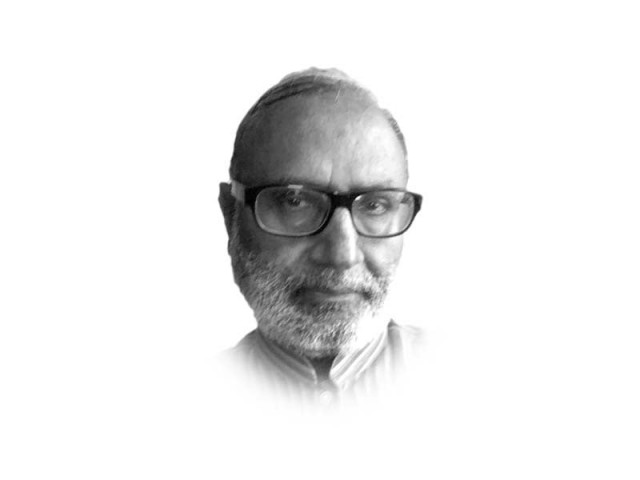Politics must lead the economy
Opposing sides must agree on a transitional economic arrangement to live to fight another day

Just when the economy of Pakistan was expected to enter the overdue stabilisation phase as a result of some harsh adjustment measures, dark clouds of political polarisation are appearing on the horizon. For the first time in the country’s history, bye-elections of a provincial assembly have been blown up into a fully-fledged binary of acrimony. The Punjab Assembly session today to elect the leader of the house is as constitutional an act as the no confidence move in the National Assembly in April. A government changed then, as it might today. So, what’s the pother about?
The losing side believes it has paid the political cost of economic adjustments and therefore must continue until the constitutional limit of the National Assembly expires. The opposing side takes its win as evidence of a lost mandate and wants to force a general election. Is it a struggle between continuity and change? Not quite. All economic Indicators are pointing towards a meltdown, but it is still preventable. Time is of the essence. Any government taking over after the general election will not just have to start where the last one left, it may well be dealing with the meltdown. Sadly, there is hardly any appreciation of the economic tragedy waiting to happen, especially those holding on to the platform of change. A caretaker setup and the highly charged electioneering will reinforce the ongoing uncertainty. It is doubtful whether there will be an agreement between the two sides on the caretaker set up and other procedural and institutional requirements for the conduct of elections. The worst game will be a technocratic setup underwritten by the establishment. As things are, this may be the last nail in the coffin of democracy. Economic growth in this country has been associated with the military-authoritarian regimes of the 1960s, 1980s and 2000s. At a time when an appointment has been made more important than the appointing authority, the technocracy may well be a dream come true for another adventure into the growth of a spurious kind. Centralised control might return. The 18th amendment and the provincially tilted NFC, blamed for federal disability to finance the two major heads of expenditure, will have seen its last. In the name of effective service delivery, non-political local governance would also stage a comeback. This time around, the case for centralisation is also pushed by the great success of the Chinese model.
The protagonists forget the long history of the Chinese civilisation, it’s largely monolithic culture, and the advantages of one language and ethnicity. They also forget the revolutionary struggles of its people. The country is not managed by the military, but a party that led its people through thick and thin. The present opposition party in Pakistan seems to think that it can imitate Chinese development through a hybrid of military-political dispensation. It has a leader who commands authority. Poverty reduction in China has always fascinated him. Like the Chinese, he will spare no one’s corruption. He has spoken against the 18th amendment and the 7th NFC. In a recent interview, he observed that all administrative divisions have to become provinces before a presidential system can be successful. All indications suggest that he is ready to launch a struggle to achieve this objective.
So long as it is a political struggle and the opponents also deal with it by political means, there should be no problem. However, the sides must agree on a transitional economic arrangement to live to fight another day.
Published in The Express Tribune, July 22nd, 2022.
Like Opinion & Editorial on Facebook, follow @ETOpEd on Twitter to receive all updates on all our daily pieces.















COMMENTS
Comments are moderated and generally will be posted if they are on-topic and not abusive.
For more information, please see our Comments FAQ